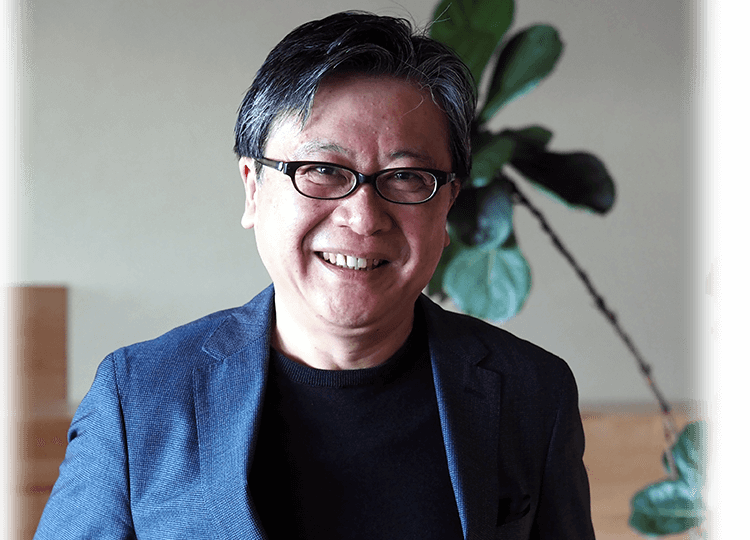Message from the Chair
Aspiring to create
the 22nd century’s
business leadership
education model.
Tomoyoshi Noda, Chairman of Board of Trustees and President

Message from the Chair
Aspiring to create
the 22nd century’s
business leadership
education model.
Tomoyoshi Noda, Chairman of Board of Trustees and President
The current mass production and mass consumption model exists on the premise of a perpetually functioning economy, supported by the financial and government organizational and institutional structures that have been created over the past century. Specialists and middle managers sustain this structure through expert knowledge as well as a carrot-and-stick approach to management methods. Changes in business practices, the economy at large, and across society in the 21st century have however, disrupted the foundations of this 20th-century business model.
The United Nations SDGs and ESG investment, which are becoming more frequent, and represented, espouse the shared concerns about the social and environmental sustainability of rising economic growth. As an alternative to the mass production and mass consumption model, distributed manufacturing, low volume manufacturing, and customization symbolized by the FabLab (fabrication laboratory) society appear to satisfy some of the diverse and individualized consumer needs and desires characterizing a mature socio-economic system.
The rapid development of social networks and the sharing economy has led to the transformation of the hierarchical structure, with its organizational framework of vertical relationships turning into a network-type organization emphasizing the personal horizontal connections across the boundaries of departments and organizations.
Amid these changes, there is a prominent shift in the perception of the capabilities of corporate leadership abilities. Rather than managing by carrot-and-stick, what could be required, by the core talents of any organization, is the ability to influence people through emotional persuasion, empathy, and trust. This without relying on title or seniority of position. Furthermore, science and technology such as AI, robotics, IoT, blockchain, and life science, as well as innovations brought about by these technologies have drastically impacted our lives. From the pursuing of economies of scale which monopolize knowledge, resources, and the market, the source of value creation has shifted towards creativity and the development of new knowledge, as well as to the entrepreneurial spirit that is willing to take risk and thus can create a new paradigm
With that in mind, as the MBA education paradigm of the traditional business school becomes more dated and loses some of its effectiveness during the transformation of the economy and society in the 21st century, Shizenkan is tackling the challenge and attempting to show the world what leadership education for the 22nd century should look like.
